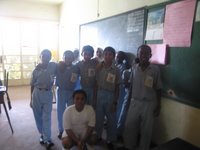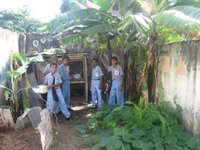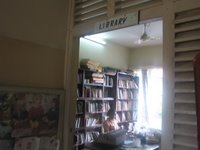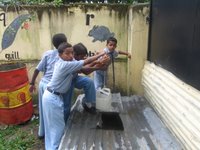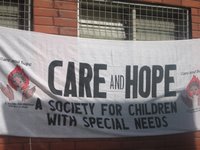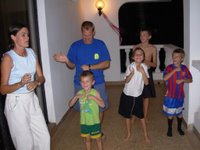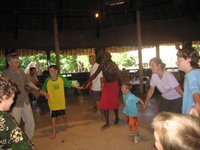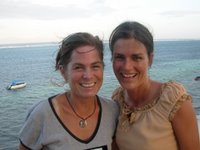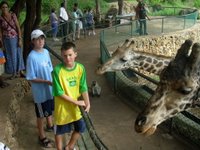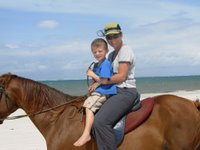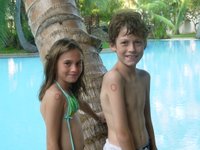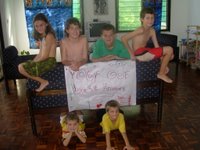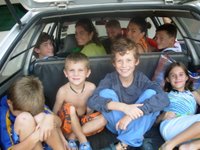
Great Times - Great Friends
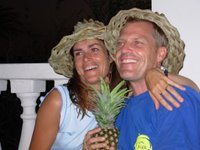
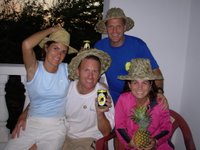
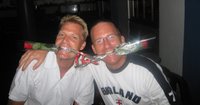
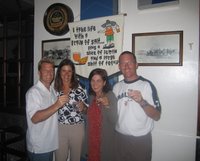 Gord, Rhonda, Brenda and Scott went out for some ‘adult time.’ We watched some of the World Cup, had dinner by the ocean, danced to a local jazz band, and toasted family and friends with a few tequilas.
Gord, Rhonda, Brenda and Scott went out for some ‘adult time.’ We watched some of the World Cup, had dinner by the ocean, danced to a local jazz band, and toasted family and friends with a few tequilas.
Our new motto: I take life with a grain of salt … plus a slice of lemon and a large shot of tequila.
Book Commentary about Africa
Paradise – Written by Abdulrazak Gurnah Setting – India and Kenya.
A pastor has shown some of the locals the use of the iron plough, and taught them to construct the wheel. These were gifts from God, he told them, who sent him to this place to offer the people salvation for their souls. He announced to them that work was God’s divine edict, to allow humans to atone for their devil. His church was also a school outside the hours of worship, and there he taught his flock to read and write. (Many people who we have met are very deeply religiously. Even though they have little in financial stability they are very spiritually connected. Some believe that God has provided their destiny and therefore should praise God and be comfortable with who and what they are).
She spoke differently, and claimed that the Kiswahili spoken in Lamu (approximately 3 hours drive North of Mombasa) was purer than anywhere else on the coast – Kiswahili asli, ask anyone. (Lamu is where the only mode of transportation is by donkey. There has been many concerns about bandits/robbers and therefore they have set hours to travel into the area with a police escort only. However, it is listed as a very beautiful part of Northern Kenya.
In the month of Shaaban, just before the arrival of Ramadhan, there is a regime of hunger and prayers. (The school is very multicultural and respects the religious and spiritual rights of others. In fact, closing of the school or postponing exams have occurred due to the certain beliefs. There is a specific prayer area for students).
Mzungu (white) lives there. I fixed his generator for him. I told him I could arrange a newer one, but he did not like that. He was shouting stating that I wanted a bribe. A small commission, perhaps… what’s wrong with that? This is the custom. (We find this scenario everyday in terms of residents and ex-patriots - a lack of trust in others).
June 16 - Day of the African Child
The Day of the African Child has been established and in honor of the 1976 Soweto Massacre that killed approximately 100 students/children in South Africa. This exert is written by Gerald Mwale.
In 1976 troops of the apartheid regime of South Africa, massacred more than 100 people, after thousands of black school children took to the streets to protest the inferior quality of their education and to demand their right to be taught in their own languages. Hundreds of young boys and girls were shot down; and in the two weeks of protest that followed, more than a hundred people were killed and more than a thousand were injured.
To honour the memory of those killed and the courage of all those who marched, the Day of the African Child has been celebrated on June 16 every year since 1991, when it was first initiated by the Organization of African Unity. The Day also draws attention to the lives of African children today. Each year a theme is chosen to mark the day. This year's theme is: African Orphans are our Collective Responsibility.
In Kenya, a huge rally, with approximately 5000 children, will be held in Thika. The event will take place in Kiandutu slum, which has the highest percentage of orphaned children. The Vice-President will be in attending, but the chief guest will be a child.
Mr. Mwale’s commentary continues:
The African child has often been the first victim of the continent's calamities. In draught-stricken and war-torn countries, it is the picture of an African child, naked and malnourished, which is displayed before the world's media, onstensibly to solicit sympathy from donors and wellwishers. African children make up between 50% and 60 % of the population.
In poor rural communities, and even in urban centres, it is the African child who is seen carrying heavy loads; already earning a living at a tender age, instead of being in school, to learn and prepare for a future that holds promise of more happier circumstances.
It is this pathetic situation of the African child that the whole world will, on June 16, pause for a while, and consider what exactly should be done to improve the welfare of the continent's future leaders.
Camel Meat
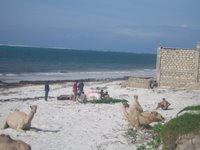
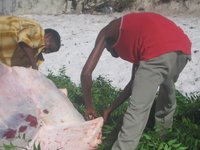
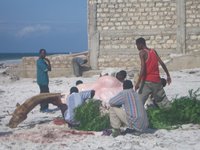 Very Interesting!
Very Interesting!
Scott and Gord were running on the beach when we came across a bunch of camels and their owners. Unbelievably, they killed one camel and began to skin it. The owner stated that they use the skin for many purposes for his family and then sells the product to others. Secondly, they cut the camel for its meat. They indicted that they cut the meat and then need to go to an inspector for approval before it is sold. However, it was clearly implied that they only needed to pay the inspector to have the meat approved. He felt that the camel, in terms of meat and skin, would be valued at approximately 20,000.00 Kenya Shillings (275.00 US). This camel was approximately eight years old.
Tennis Friends Visit Mombasa
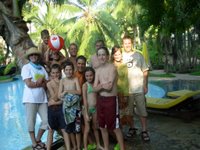
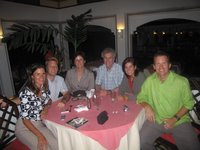

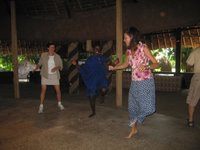 Ironically enough, the Choate’s were delayed at the Nairobi airport and meet some fellow Canadians (Judy and Bruce Watson) who were coming to visit us for two days before they left for on a safari. The timing worked very well as we were on a midterm break for five days. We had lots of excitement and fun with a 48 hour time frame. The Watson danced with locals and even tried crocodile for a snack. The adults had dinner one night and it was refreshing for Brenda and Scott as the dinner talk was all about Canada and Calgary specifically.
Ironically enough, the Choate’s were delayed at the Nairobi airport and meet some fellow Canadians (Judy and Bruce Watson) who were coming to visit us for two days before they left for on a safari. The timing worked very well as we were on a midterm break for five days. We had lots of excitement and fun with a 48 hour time frame. The Watson danced with locals and even tried crocodile for a snack. The adults had dinner one night and it was refreshing for Brenda and Scott as the dinner talk was all about Canada and Calgary specifically.
Africa in the News
Senegal, Africa’s westernmost country, has become a major departure point of thousands of mainly West Africans seeking a better life. Recently (June, 2006), a large group of Africans were detained by Spanish authorities as the boast was attempting to reach the Canary Islands.
It is estimated that 50-60 people, usually younger males, are grouped in small wooden fishing vessels/dowels. The risky sea journey is approximately 1,350 kms or about 850 miles north. Apparently the number of Africans attempting this trek has increased dramatically after Morocco clamped down on illegal migration. It is estimated that over 7000 Africans have reached the Canaries this year.







